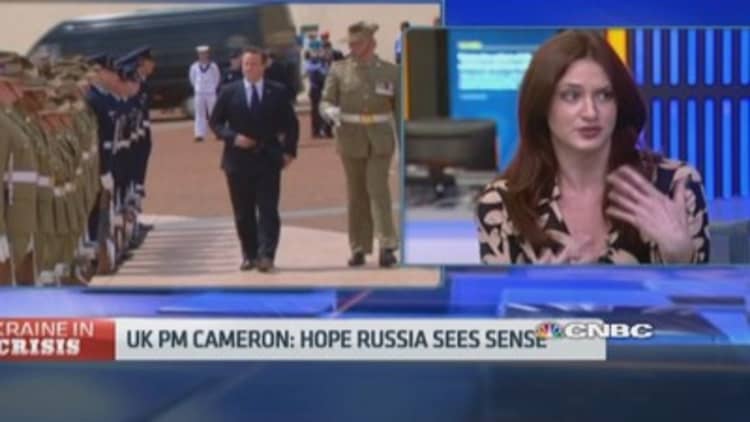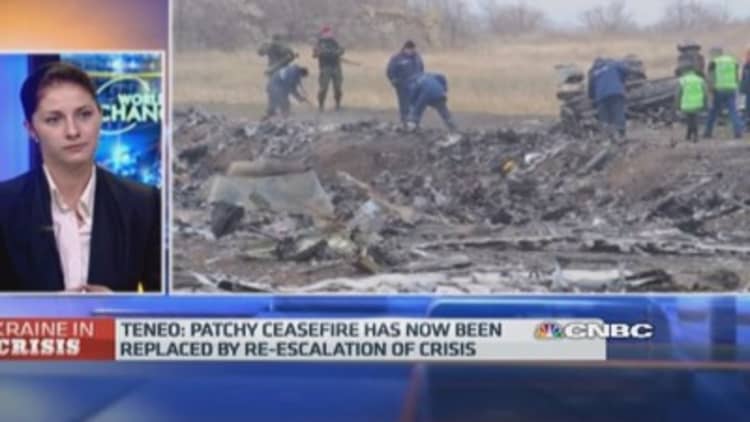
While reports circulate that Russian troops with heavy equipment are moving into eastern Ukraine, experts say the West is largely out of economic ways to retaliate against the Kremlin.
There are only three sectors that matter much to Russia's political elite—military weaponry, banking and energy—and the U.S. and Europe are hard-pressed to find new ways to penalize those industries in ways that aren't overly drastic, according to Lauren Goodrich, senior Eurasia analyst at global intelligence and advisory firm Stratfor.
"There's nothing that isn't a nuclear option left on the table," she said. "There isn't too much more to do."
With a ban on weapon sales, the Russian military sector has been hit about as hard as it can be, she said. Meanwhile, additional energy or financial sanctions would have massive global implications: The U.S. and Europe could ban energy companies' operations in Russia, but the Western business community would never allow that to happen, experts said.
Read MoreUkraine: The pain is far from over
"The U.S. business community does not want to go down that road," said Donald Jensen, fellow at Johns Hopkins University's Center for Transatlantic Relations. "And the EU especially doesn't want that."
On the financial industry side, sanctions could bar Visa, MasterCard and SWIFT (which manages international money transfers) from operating inside Russia. Such actions "would be a big problem for Russia," Goodrich said, explaining that they would virtually shut down the nation's digital commerce because that's "one of those sectors that takes years, if not decades, to build."
Such drastic measures could become possible if Russian President Vladimir Putin were to order a major incursion into the heart of Ukraine, Jensen said.

Politicians have floated the idea of minor sanctions, such as travel restrictions on more Russian officials, but these are unlikely to have any effect, experts told CNBC.
Ineffective, or otherwise, new sanctions may be on their way, according to some international observers.
As violence intensifies in the far east of Ukraine, "Brussels and Washington will hold Russia chiefly responsible, and they will expand existing sanctions in the coming months. This will not, however, change Putin's policy or calculus in Ukraine," Alexander Kliment, director of Russia and EM research at Eurasia Group, wrote in an email to CNBC.
One way to bolster existing sanctions' impact would be a law that permanently codifies them. Many expect such a bill to be passed by the U.S. Congress—especially when Republicans take control of the Senate in January—but it is unclear whether President Barack Obama would sign it.
"Once you pass a law, it's hard to repeal a law," Jensen said.
Read More Ukraine economy in 'free fall,' banking group says
But even that move could be ineffective without coordination with Europe—which is far from a sure bet.
"If the U.S. does it, it doesn't mean the Europeans will follow suit. And as long as it's just us, the action remains weak," Goodrich said. "You have to get the Europeans on board, and it's not an option for them."
The best course of action to keep economic pressure on Russia, both Goodrich and Jensen said, would be to maintain the current sanctions for years to come. But Europe may be less inclined to renew its restrictions when they expire next year, they said.
—CNBC's Dina Gusovsky contributed reporting.


